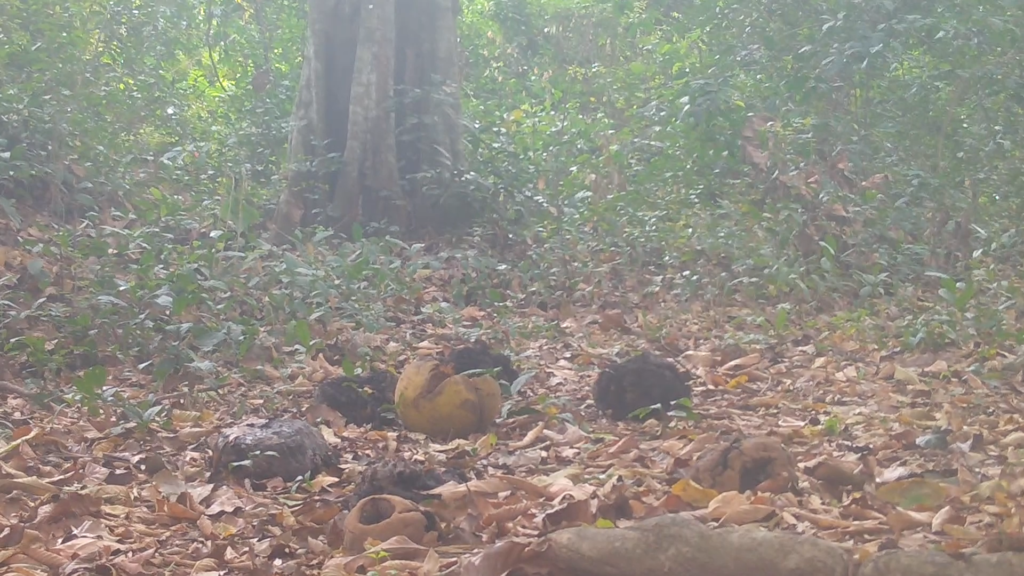Chimpanzees in the Wild Seen Sharing Alcoholic Fruit, Hinting at Ancient Roots of Social Drinking
Humans have gathered for thousands of years to eat, drink, and enjoy each other’s company—but new research suggests wild chimpanzees may also bond over naturally fermented, mildly alcoholic fruit.

In West Africa, scientists have observed chimpanzees in the wild sharing fruit containing small amounts of alcohol—not enough to become intoxicated, but potentially enough to produce a mild, beer-like buzz.
The research team, led by scientists from the University of Exeter in the UK, captured rare footage of chimpanzees sharing fermented African breadfruit in Guinea-Bissau’s Cantanhez National Park.
“For humans, drinking alcohol triggers the release of dopamine and endorphins, producing feelings of happiness and relaxation,” said Anna Bowland, from Exeter’s Centre for Ecology and Conservation at the Penryn campus in Cornwall.
“We also know that sharing alcohol through rituals like feasting plays a key role in forming and strengthening social bonds.
“Now that we’ve seen wild chimpanzees eating and sharing ethanolic fruits, the big question is: could they be gaining similar social benefits?”
The team used motion-activated cameras to document chimpanzees sharing the large, fibrous fruit on 10 occasions. Tests on the breadfruit showed alcohol levels reaching up to 0.61% alcohol by volume (ABV).
“Chimpanzees don’t typically share food frequently, so this behavior involving fermented fruit may carry social significance,” explained Dr. Kimberley Hockings, also from the University of Exeter.
While the alcohol content was relatively low, Hockings noted that the chimps consumed large amounts of fruit daily—possibly ingesting enough alcohol to produce noticeable effects. “They can eat kilos of it every day. It’s a bit like us sipping on a light beer,” she said.
This isn’t the first time chimpanzees have shown interest in alcohol. In a 2015 study, Hockings and colleagues documented chimpanzees stealing and drinking palm sap alcohol from human sources—sometimes becoming disruptive, including preventing others from building their night nests.
In the current study, researchers emphasized that it’s unlikely the chimps get fully “drunk” on breadfruit, as such behavior wouldn’t offer a survival advantage.
The sharing behavior was observed among chimpanzees of different ages and sexes. Two adult females, nicknamed Chip and Até, were seen choosing a smaller, fermented fruit over a larger fresh piece. Meanwhile, adult males Mandjambé and Gary approached ripe breadfruit with tension, before Mandjambé secured a piece. Another male, Bobby, intervened to keep Gary away. Eventually, all three sampled the fermented fruit.
Published in Current Biology under the title “Wild Chimpanzees Share Fermented Fruits”, the study poses a compelling question: could the origins of feasting and social drinking trace back to a shared ancestor?
“We still need to understand whether chimpanzees actively seek out alcoholic fruit, and how their bodies process it,” said Hockings. “But this behavior may reflect early evolutionary roots of feasting. If that’s the case, human traditions around food and drink may stretch much deeper into our shared history than we thought.”
Though based on a limited number of observations, Hockings added that the findings may spark a wave of new studies into chimpanzee behavior and the evolutionary origins of communal eating and drinking.